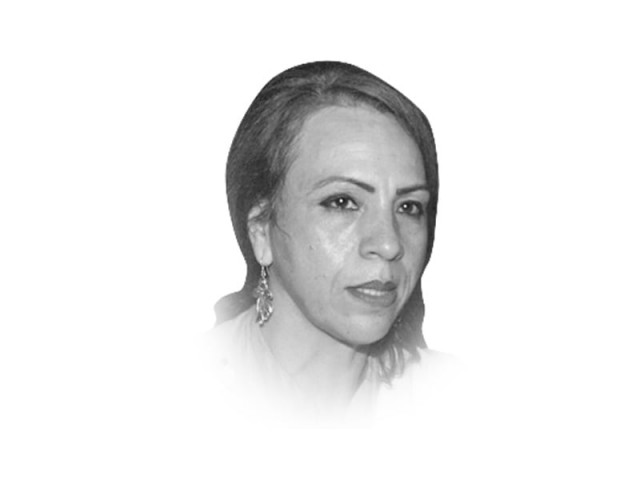Beyond reforms
Imran Khan offers only a myopic vision of reforms that do not offer solutions to multiple crises country faces today.

Beyond reforms
The euphoria created by the massive size of the enthralled crowd that Imran Khan finally succeeded in pulling onto the grounds of Minar-e-Pakistan, is the talk of the day. Political pundits consider it a turning point in the two-party politics of the country. The shifting trend is already visible in the electable political entrepreneurs who have started to jump onto Imran’s bandwagon.
Beyond the speculations regarding who supported Imran’s show in Lahore (agencies, establishment, etc.), the fact that merits recognition is that the mass mobilisation Khan’s rally engendered is clearly an indication of one thing if nothing else; that the people of Pakistan want change. However, what Imran Khan was able to offer people was just a myopic vision of reforms that are unable to offer solutions to the multiple crises that the country is facing today.
While living in the age of globalisation making no reference in his reform proposal to global politics and the neo-liberal macroeconomic frameworks that are primarily responsible for creating abject poverty around the world, Imran simply shows the level of his political immaturity. While the crisis of capitalism world over is making it increasingly difficult even for well-established liberal and social democracies in the West to effectively respond to growing unemployment and discontentment of their citizens, one wonders how Imran Khan could steer the country out of its economic crisis without taking some radical/revolutionary steps.
While Khan touched on all the issues that concern citizens, he failed to give a road map. His speech was devoid of substance.
He talked about establishing an Islamic welfare state in Pakistan without explaining how this would be achieved. The concept of a social welfare state that guarantees the fundamental rights of education, health and employment to its citizens requires financial resources. His recipe for resource mobilisation narrowly focuses on tax collection and declaration of assets of politicians only, while conveniently ignoring the top brass of civil bureaucrats, the business community and the military elite who are equally guilty of looting the national resources and also need to be held accountable. He avoided mentioning a cut in our defence budget, which consumes the largest chunk of national resources and reducing which poses the easiest way of mobilising resources for the social sector. Khan must understand that without reorienting our spending priorities, his promise of establishing a social welfare state is nothing more than a mere empty promise.
He talked about raising the living conditions of the rural and urban working classes, but maintained a silence on the issue of land reforms, which is critically important for the landless rural majority. Similarly, when discussing the lives of the urban working class, he failed to utter a word on the state policy of privatisation that threatens their livelihoods.
Moreover, Imran’s understanding of women’s rights and empowerment appears to be shaped by the Jamaat-e-Islami’s fundamentalist version of Islam. He reduces women’s empowerment only to the rights of inheritance, while knowing that the vast majority of people in Pakistan don’t have property and have nothing to pass on to their children. He should know that the core issue in the problem of the subordination of women is the gender role ideology that confines them to the reproductive arena of the home as private citizens and men to the productive public arena as breadwinners.
Moreover, Imran Khan’s public stand on terrorism is well-known. He is an ardent supporter and sympathiser of the Taliban. He justifies their terrorism as revenge and response to US drones attacks. He never condemned their brutal suicide attacks on innocent citizens, educational institutions and religious places. His lack of understanding of Islam, misplaced romance with tribal culture, love for jirga systems and association with western modernity makes him the most confused and, in some ways, the most dangerous politician in Pakistan.
We should know that Imarn’s popularity is amongst the urban upper-middle-class and petty bourgeois youth who are certainly interested in good governance and wish to see meritocracy prevail and corruption curbed in the country. However, this class of people is reluctant to play a political role in social movements. These people are always looking for a messiah who could take control of things on their behalf and solve problems with a magic wand.
The phenomenon of charismatic personality-driven politics in South Asia is primarily responsible for the lack of development of a democratic culture and political institutions. In the absence of party structures, there is a tendency for leaders to become all-powerful and autocratic. Therefore, it is the responsibility of the middle-class youth to curb this trend and ask the right questions to apply pressure for the Pakistan Tehreek-e-Insaf (PTI) to develop a democratic party structure and culture. Otherwise, the new party with it heavy dependence on Imran’s charisma will be no different than those political parties who have been capitulating to the establishment and have managed to destroy the country in pursuit of their own self-interests.
It is our shared responsibility to be vigilant, raise questions and make sure that the emerging political alternative that has come in the shape of the PTI does not become the new horse of an old establishment.
Published in The Express Tribune, November 23rd, 2011.














COMMENTS
Comments are moderated and generally will be posted if they are on-topic and not abusive.
For more information, please see our Comments FAQ